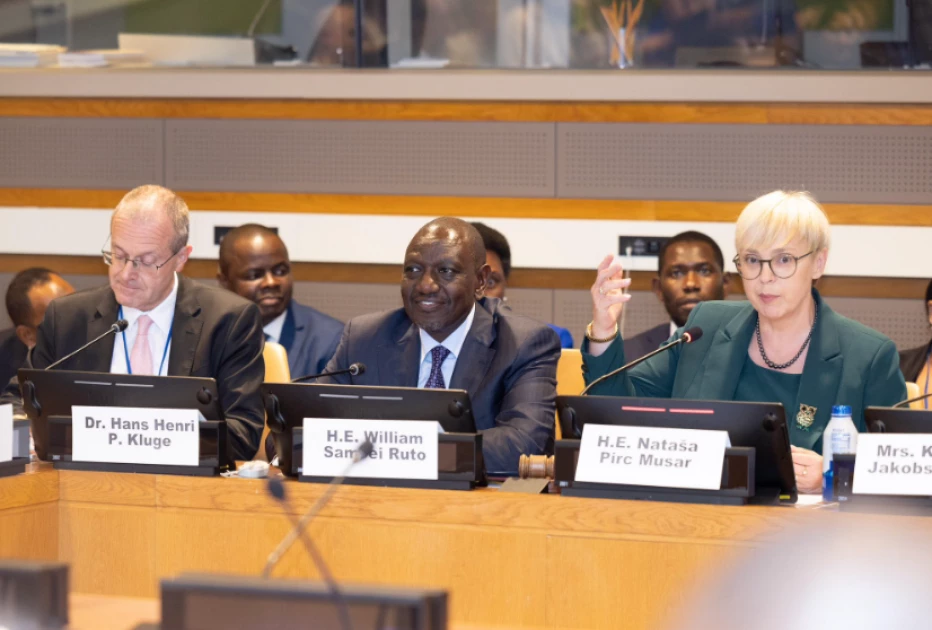President William Ruto has called out the global climate financing system for unfairly burdening African economies.
The President said it was unacceptable for African nations to be expected to raise 60 per cent of climate finance domestically while contributing the least to the climate crisis.
He explained that this is a heavy strain on many countries, especially those already battling high living costs and repeated climate shocks.
“We must not ignore the risks of overtaxing small, vulnerable economies already battling high costs of living and climate shocks. For many of our citizens, the social contract does not allow this to be the ultimate solution," he said.
Speaking at the High-Level Solutions Dialogue on Climate Finance on the sidelines of the 80th UN General Assembly, President Ruto asked the global community to adopt innovative solutions to address the climate financing challenge.
He pointed out that the solution lies in stopping illicit financial flows, securing a fair global tax system, reducing sovereign debt pressures, and unlocking major investment.
“Africa loses nearly $90 billion every year through leakages that rob us of the very resources we need for climate action. This is why our continent is strongly advocating a fairer global tax system through the proposed UN Tax Convention,” he said.
The President explained that what should drive the financing agenda forward is easing debt, mobilising domestic resources, unlocking private finance, scaling international public finance, and anchoring these in country-led strategies.
Saying that Africa is determined to turn climate solutions into engines of growth, he explained that this is positioning the continent as a global hub for green industry that delivers both development and climate action.
“Our greatest opportunity lies in growing and diversifying our economies through climate-positive growth, turning the very solutions to climate change into drivers of development,” he said.
The President said Kenya was among four countries that sponsored the Independent Expert Review on Debt, Nature and Climate, adding that the ideas and knowledge already exist; what is missing is action.
He appealed to investors to look beyond outdated stereotypes, saying Africa has vast potential in mineral processing, value addition in agriculture, and alternative fuels.
“Too often, perceptions of risk overshadow reality, yet Africa offers some of the most exciting opportunities for green growth in the world,” President Ruto explained.
He cited initiatives such as the Africa Green Industrialisation Initiative (AGII) and the Accelerated Partnership for Renewables in Africa (APRA) as evidence of the continent’s readiness.
“We are reforming our policies, mobilising domestic capital, and building strong project pipelines to attract global investors,” he said.
Pointing out that Africa is showing the way, the President said eight leading African financial institutions had signed a cooperation framework to unlock $100 billion in investment.
He, however, warned that success depends on global partnership.
“We are doing our part but, to succeed, we need global offtake agreements, market access, and foreign investment at scale,” he said.
President Ruto urged the global community to act swiftly to reverse the effects of climate change, warning that time is running out.
“Climate change is a global existential threat. What we do, or fail to do, will shape the destiny of humanity. Let us act boldly and together, and match words with deeds if we are to turn the challenge of climate change into the greatest opportunity of our time,” he said. PCS






